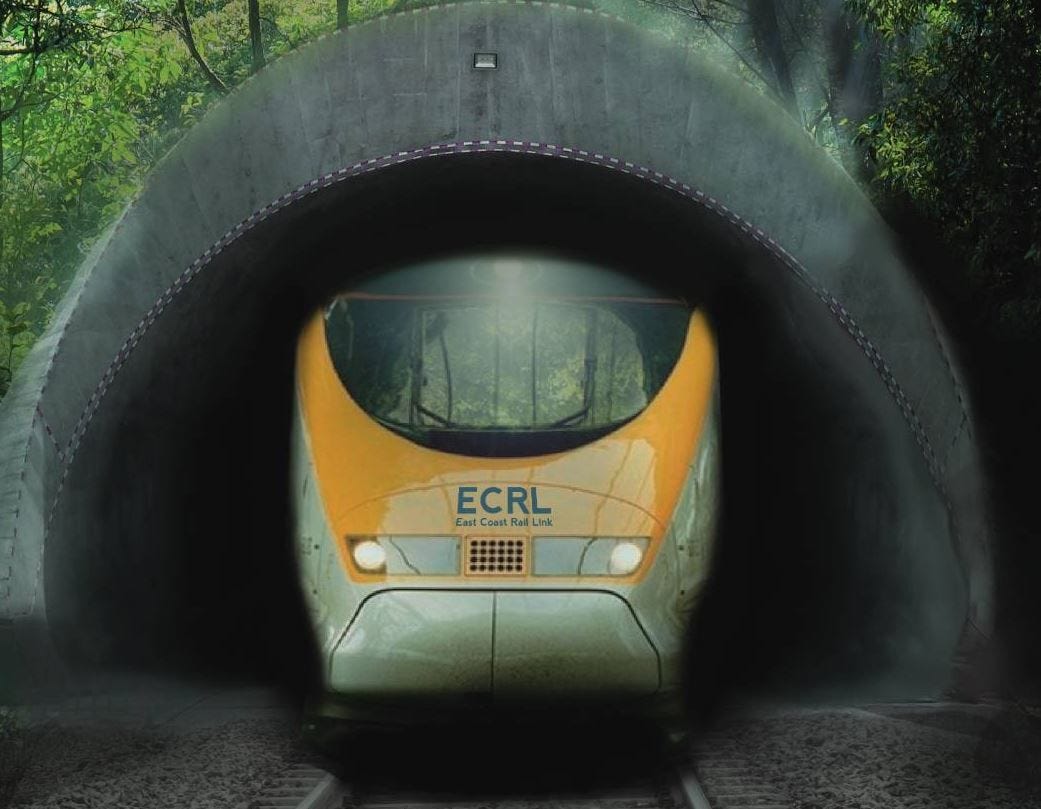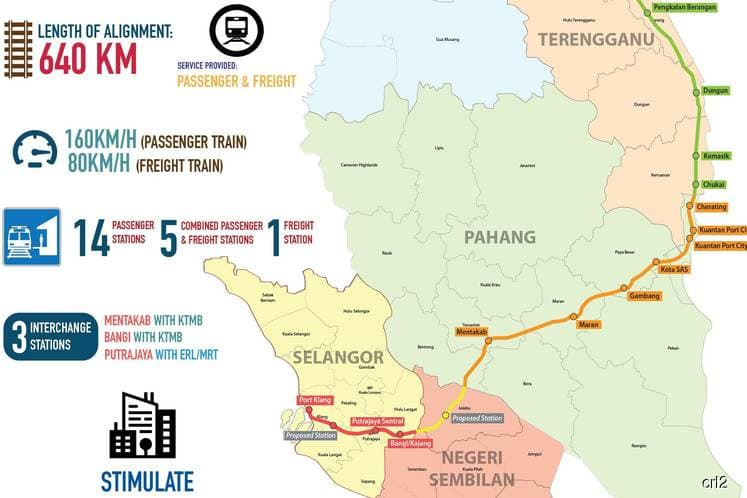Murray Hunter
Big opportunity for ECRL land-bridge to be a competitive transport route
Thai Kra land-bridge now dead in the water

MURRAY HUNTER

Malaysia’s East Coast Rail Link (ECRL) land-bridge between the ports of Kemaman, Terengganu and Kuantan, Pahang linking shipping ports in the South China Sea and Port Klang in the Melaka Straits gets a massive boost, now the Thai megaproject is very likely not going ahead.
The Thai Kra land-bridge proposal, linking Chumphon in the Gulf of Thailand with Ranong in the Andaman Sea has been criticized for undesirable environmental impacts, and is opposed by local residents along the route.
In addition, Thailand has so far failed to obtain investors for the project. In particular, China has lost interest in the project and has sort out a deep-sea port in Kyaukphyu, in Rakhine State Myanmar, as an effective route that avoids the Melaka Straits. This port will also be serviced with a pipeline from China. Its unlikely the United States, Korea, and Japan would commit to investing in the land-bridge, due to the huge costs of the Thai project, as ports need to be built from scratch.
Enter the ECRL land-bridge
The ECRL between Kota Baru in Kelantan to Port Klang, via the ports of Kemaman and Kuantan will enable a land bridge to Port Klang. This will allow a direct connection between the South China Sea and the Strait of Malacca.
This link should be highly competitive with the proposed Kra Land bridge between Chumphon in the Gulf of Thailand and the Andaman Sea. The distance by sea for both projects are very similar, as ships using the proposed Kra project will have to cruise into the Gulf of Thailand first. Thus, a competitive Kemaman/Gebeng to Port Klang land bridge in operation is a potential game-changer in Korea-Japan-Korea and Mena-European trade. This could potentially build Port Klang into one of the most strategically important ports in the region.
The key to a successful ECRL land bridge is trimming down de-load and re-load times at the ports at both ends. This normally takes 1-3 days. The land bridge authority will need to develop very efficient logistics to make the land bridge effective. Secondly, charges must be very competitive with the costs for shipping companies using the existing shipping route around Singapore.
Another improvement upon the land bridge would be to enable trains to travel up to the Penang Port, which would completely by-pass the Melaka Straits and save another 1.5 days shipping time. Most of the infrastructure already exists, and this route could in theory be in operation before the link to Port Klang is completed.
The ECRL land bridge would greatly reduce sea traffic in the Straits of Melaka. It would become an important route, should there be any mishap within the Melaka Strait. China would become very interested in using the route, should the civil war in Myanmar render the Kyaukphyu too dangerous to use. Strategically, the Melaka Strait is a dilemma for China.
Positive externalities from an existing project
Since the ECRL is an ongoing project, the land bridge will provide massive positive externalities that will benefit both the East and West coasts. The land bridge will boost shipping, transport, and provide Malaysia another lever to be competitive over the Port of Singapore.
In effect, the ECRL land bridge will require minimal investment, above what has already been committed. What is needed most is Malaysian politicians, bureaucrats, and businesspeople to jump in and support Malaysia’s upcoming land bridge, rather than look at the failed Thai proposal in awe.

Malaysia’s land bridge could become one of the region’s most strategic assets, and project Malaysia’s economy forward. In 2021, 22 percent of the world’s maritime trade, worth USD 5.3 trillion passed through the South China Sea into the Melaka Straits.
This is one project where Malaysia boleh.
Originally published in My Sin Chew 1st February 2024
ECRL was a bad deal that Malaysia found itself locked in, courtesy of The Great Najib, that it is now trying it best to make a lemonade out of a lemon.
ReplyDeleteNo matter what, the original Bad Deal is impossible to escape
That deal was BAD, with many billions paid undertable to jibby&cronies!
DeleteBut the concept of ECRL is still workable for a spillover economic effects to the surrounding hinterlands!